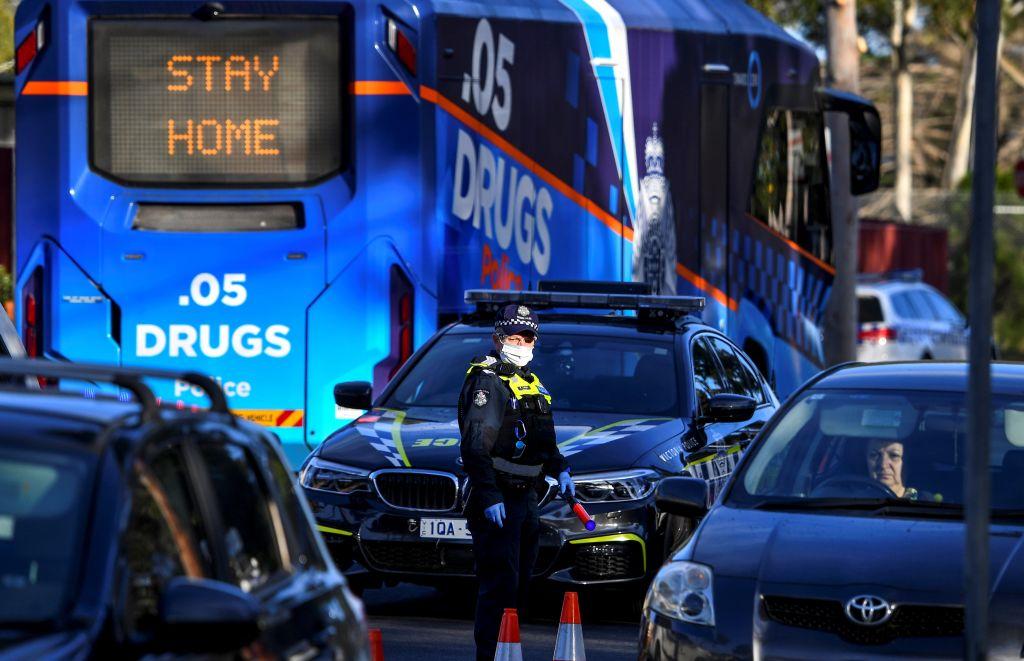
The beat
Police checkpoints to enforce Melbourne coronavirus lockdowns
Police have set up checkpoints around Melbourne suburbs that are subject to stay-at-home orders over an outbreak of Covid-19. Police will screen those entering and exiting the ‘hot spot’ areas in 10 postcodes to ensure their 300,000 residents have legitimate reasons to be moving around. Victorian Premier Daniel Andrews has emphasised that such strict measures are necessary to stem the growth in Covid-19 cases in Melbourne and prevent a wider lockdown of the city.
Facial recognition wrong 96% of the time
Facial recognition technology used by Detroit’s police department misidentifies people 96% of the time, according to the city’s police chief. The software has been employed 70 times this year, with 68 of those investigations involving people of colour. Several US police departments have banned the use of the technology over concerns about racial bias, but Detroit decided to regulate its use rather than ban it altogether. The unreliable nature of facial-recognition software, and how it’s being used in Detroit, was exposed in a New York Times report on the arrest in January of Robert Julian-Borchak Williams.
CT scan
Terrorists killed in Pakistan stock exchange attack
Four gunmen were killed by guards when they attacked Karachi’s stock exchange on Monday. Two other people died in the attack and a number of others were injured. The Majeed Brigade, which is linked to the Balochistan Liberation Army, claimed responsibility. The US has regularly accused Pakistan of failing to control extremists using its territory and, prior to the Karachi attack, the country was also under pressure from India to extradite a Pakistani suspected to have been behind the 2008 Mumbai terror attack.
UK man jailed over role in German terror plot
A 35-year-old British man has been sentenced to life imprisonment for helping two Germans plan a terror attack in their home country in 2018. Fatah Abdullah will serve at least nine years in prison after he gave instructions for a homemade bomb using 8,000 matchheads and other household items. The plan was uncovered by German police in January 2019 and Abdullah admitted inciting the men to carry out a terrorist act.
Checkpoint
North Korea steps up border surveillance
North Korea has installed more cameras and phone-tapping devices and put more government agents in place along its border with China as part of efforts to curb defections and smuggling of people and goods. North Koreans seeking to defect to South Korea often go to China first. Kim Yo-jong, sister of North Korean leader Kim Jong-un and vice-director of the United Front Department, has described defectors in the South as ‘human scum’ and demanded they be severely punished. The number of North Koreans defecting to the South had been steadily decreasing before the new measures were put in place; in 2019, South Korea’s Ministry of Unification reported just 1,047, the lowest number in 18 years.
EU to reopen borders to Covid-safe countries
Citizens from 14 countries considered ‘safe’ will soon be allowed to enter the EU for non-essential travel. The list, which will be updated every two weeks, is determined by national infection rates, downward trends in new cases, and social distancing measures. Australia, Canada and South Korea are on the list, while Brazil, Russia and the US have been excluded. However, Australians probably won’t be travelling to Europe anytime soon. Last month, Tourism Minister Simon Birmingham warned that the country’s borders were likely to remain closed for the rest of the year, and the Australian airline Qantas announced that international flights might not resume until July 2021.
First responder
Urban Aboriginal Australians neglected in Covid-19 response
A report by national health experts has found that the Australian government failed to take sufficient measures to protect Aboriginal communities living in urban areas from the coronavirus, even though they make up about 80% of all Indigenous Australians. The National Indigenous Australian Agency’s response was instead focused on remote areas. The experts earlier reported that other neglected communities included migrants and refugees.
Syria’s despair continues
Representatives from dozens of countries, the United Nations and the European Union took part in an online fundraising event that aimed to raise US$10 billion in aid for Syria. The devastation left by the nine-year Syrian conflict has been compounded by economic collapse and the Covid-19 pandemic, leaving millions out of work and 80% of the population in poverty. A total of US$7.7 billion was pledged, but that result drew criticism from Oxfam, which said it wouldn’t be enough to deal with the crisis.